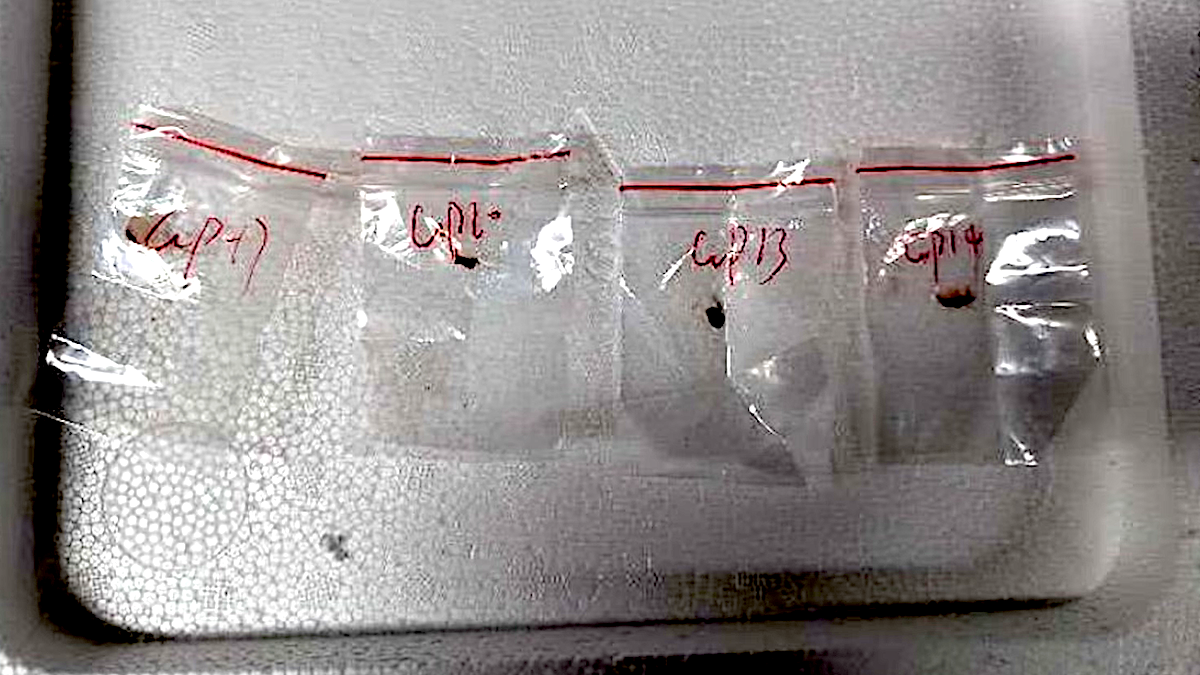
In a stunning case that reads like a bioterror thriller, two Chinese nationals have been accused of smuggling a highly dangerous biological pathogen — a so-called “killer fungus” — into the United States. Federal authorities say the fungus could devastate America’s food supply and may have been part of a larger espionage scheme.
Yunqing Jian, 33, and Zunyong Liu, 34, both Chinese researchers who reportedly have ties to the Chinese Communist Party, are at the center of a brewing international scandal. U.S. officials have charged the duo with conspiring to transport Fusarium graminearum, a fungal pathogen so destructive that it’s listed in biodefense literature as a potential weapon of agroterrorism.
Chinese nationals smuggle killer fungus: what happened?
New… I can confirm that the FBI arrested a Chinese national within the United States who allegedly smuggled a dangerous biological pathogen into the country.
— FBI Director Kash Patel (@FBIDirectorKash) June 3, 2025
The individual, Yunqing Jian, is alleged to have smuggled a dangerous fungus called "Fusarium graminearum," which is an…
Reportedly, the biological plot began to unravel in July 2024, when Liu was stopped by customs agents at Detroit Metropolitan Airport. Hidden in his backpack: multiple sealed vials of Fusarium graminearum — a fungus known to annihilate wheat and barley crops while poisoning food supplies with deadly mycotoxins. He initially denied any knowledge, but soon admitted the samples were bound for a University of Michigan lab run by Jian.
The kicker? That lab wasn’t licensed to handle any biological threats. And neither Jian nor Liu had the proper U.S. permits. According to investigators, this wasn’t a one-time blunder — it was deliberate smuggling, backed by encrypted chats and a digital trail of deception.
Liu was deported back to China before charges were filed. Jian, still on U.S. soil, was arrested and is now facing federal prosecution.
What is Fusarium graminearum?
Fusarium graminearum is a pathogen of wheat which causes head blight. It is found throughout the USA. Controlled with fungicides. pic.twitter.com/O3BoDziiZD
— James Schnable (@szintri) June 4, 2025
Don’t let the scientific name fool you. Fusarium graminearum is no ordinary mold — it’s a crop-killing nightmare. This soil-borne fungus is the cause of Fusarium head blight (FHB), a devastating plant disease that contaminates cereal crops like wheat, corn, and barley with vomit-inducing mycotoxins, such as deoxynivalenol (DON) — also known as “vomitoxin.” (That word alone has us worried.)
According to the CDC and agricultural experts, exposure to the toxin can cause vomiting, immune suppression, and long-term organ damage. Economically, it’s already responsible for hundreds of millions in crop losses annually, and widespread contamination could cripple America’s food chain.
The fungus is so potent, it’s been flagged in multiple biodefense reports as a low-tech but highly effective bioweapon.
Who Are Jian and Liu?
According to investigators, both Jian and Liu are trained scientists with advanced degrees in microbiology, but Jian is also a known member of the Chinese Communist Party. The FBI says encrypted communications between the two show deliberate plans to bypass customs, ship dangerous pathogens, and evade U.S. regulations.
Shockingly, data recovered from Liu’s devices included Chinese-language documents related to biological warfare tactics, raising even more red flags about their intent.
National security panic
This is terrifying especially since Covid came from a lab in Wuhan China.
— Marjorie Taylor Greene
But seriously why do we have our meats processed in China?
Why do we take medicines made in China?
Why do we buy anything from China if they are constantly trying to make Americans sick and die??? https://t.co/4B0IKOklxB(@mtgreenee) June 4, 2025
This bizarre, chilling case has reignited fears of agroterrorism — the use of plant or animal pathogens to wage war on a nation’s economy and stability. The University of Michigan, where Jian was employed, claims it had no knowledge of the pathogen shipment and denies receiving any funding from China’s government. But federal investigators are now reportedly reviewing hundreds of other university-based collaborations with Chinese nationals.







